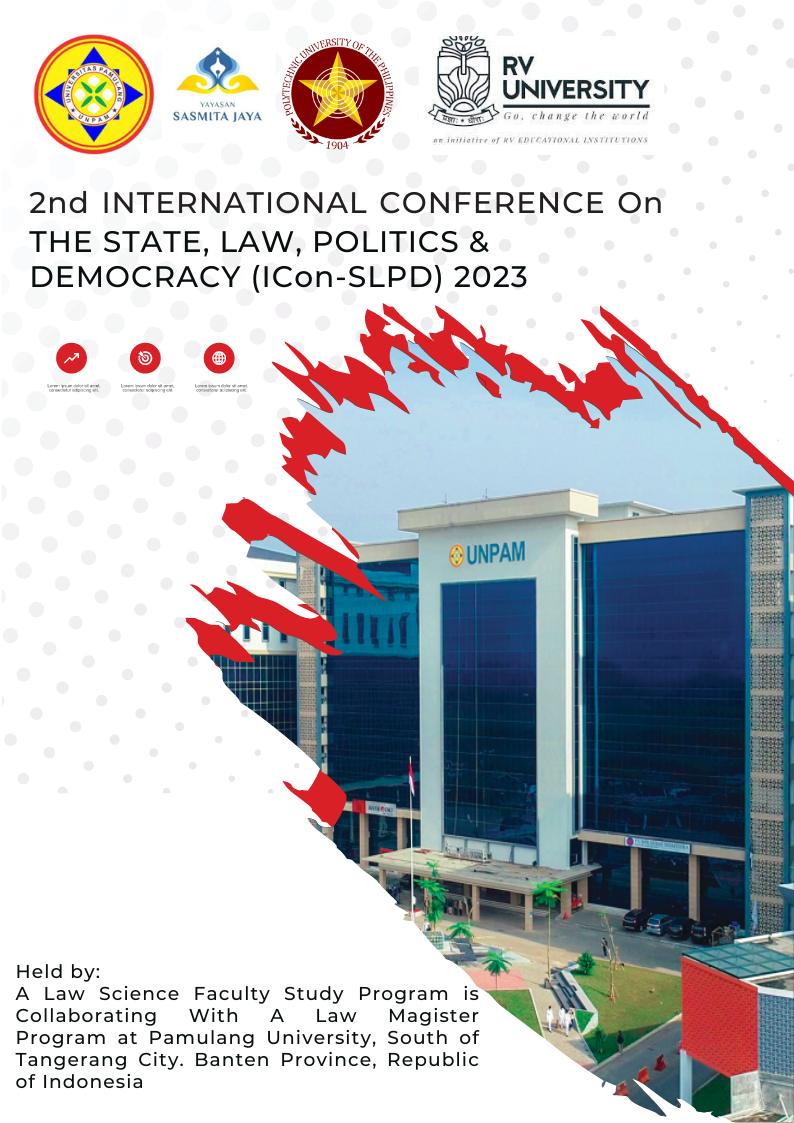Personalization Principles in the Context of Transnational Terrorism Crimes: A Legal (Analysis Analisis Yuridis Prinsip Personalitas Dalam Konteks Delik Terorisme Lintas Negara)
Abstract
ABSTRACT
Terrorism is categorized as an extreme circumstance that is worrying the world today, as a crime against humanity, and as a significant challenge to any country's sovereignty, because terrorism has become an international case that threatens global security and peace. Terrorism is one of the types of international instances that causes widespread anxiety among the public. The author employs the normative method, which is a research approach that focuses on the study of texts through qualitative normative analysis. Because this work is founded on rules that act as positive legal standards, normative analysis is used, whereas qualitative analysis is an attempt made to focus information in order to get descriptive data. Terrorism is a word with a delicate connotation since it is capable of creating catastrophes and the sorrow of innocent people. Terrorism is a source of significant concern among residents and the whole global community, particularly the people of Indonesia. Terrorism is one type of international instance that causes fear, worry, and bloodshed. Law No. 5 of 2018 changes Law No. 15 of 2003, Making Government Regulations, and replaces Law No. 1 of 2002, Eradication of Terrorism Delicts. Paragraph 1 of Article 1 (2) In accordance with Regulation No. 5 of 2018, This approach does not allow judges to choose the optimum sort of punishment for the accused. In theory, state terrorism might be considered as a severe case under International Criminal Court (ICC) doctrine. A country that assaults its own inhabitants on a big scale and in a systematic manner is committing a crime against humanity. And, while the legislation considers the interests and fairness of society, its application is bolder and more progressive, particularly by law enforcement officers.
Keywords : Principles, Transnational, Terrorism, Crimes.





